With special attention to the HVACR sector, the story unravels the myths surrounding blockchain technology and attempts to gauge industry perception and the success of existing platforms, which use this technology.
In April 2018, the UAE Government launched the Emirates Blockchain Strategy 2021, where 50% of government transactions are to adopt a blockchain platform over the next three years. Recently, Smart Dubai (SD) and the Department of Finance (DOF) integrated blockchain technology into the online payment portal, DubaiPay, to allow reconciliation and settlement transactions to be performed in real time, officials say.

Andrew Schumer
Andrew Schumer, Managing Director, Black Wit Cyber Solutions, applauds the UAE government for its openness to the technology. Schumer says: “The UAE is incredibly forward in the way it works. What’s interesting is that the UAE is pursuing the technology to test it, while putting money where their mouth is.” And, even though he’d like to see regulators continue to work with the technology, he says that people are often confused about what blockchain means and its implications, if applied to the HVAC industry.
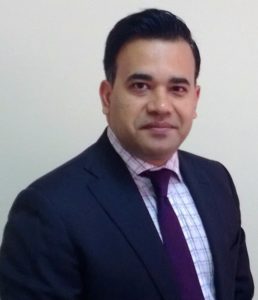
Nesar Reza Khan
More than 99% of people associate blockchain with cryptocurrency, says Nesar Reza Khan, Executive Director, FP Global Developments, while highlighting the myths surrounding the application of blockchain to the HVAC industry. He says, “For a long time, blockchain was seen as a threat, and its application was believed to have the potential to introduce corruption and money laundering into the trading end of the HVAC industry.” The most common mix-up, he says, is with Bitcoins and cryptocurrency. “Blockchain is a software, a tool used as a database, while cryptocurrency is an online trading platform for assets like stocks, shares and bonds,” explains Khan.
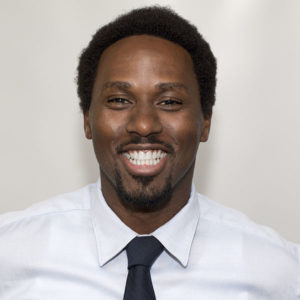
Harold Dickenson Jr
Drawing connections between cloud computing and blockchain technology, Harold Dickenson Jr, Manager, Visualisation & Immersive Technology Group, AECOM, Middle East, says, “Cloud computing was the first gateway to blockchain and refers to the decentralisation of data-storage.” If applied to the HVAC industry, Dickenson says that it will create a whole new level of data sharing. He says that it is good to be optimistic about the technology; however, we must be aware of its positive and negative effects.

Joseph Aamidor
Joseph Aamidor, Managing Director, Aamidor Consulting, says that the differing views on the technology, can often leave a person confused, At its core, blockchain is a digital ledger. What’s interesting, he says, is that the information fed into the system will be anonymised and immutable. Each stakeholder, he says, will have access to the system and the transaction history, making it both secure and easy to access.
Forecasting blockchain in HVAC
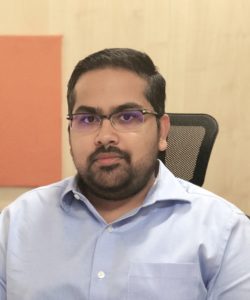
Arvind Srinivasan
Arvind Srinivasan, Head, Global Strategy, Emudhra, says the first issue that the application of blockchain will address is the low quality of work within the industry. “Blockchain will raise the standard of output with regard to manufacturing, supplying, installation and even servicing,” he says. Pointing to the food-reviewing portal Zomato, he stresses the importance of having an open system and says: “Have you wondered what makes, Zomato successful? It is because of its reviewing and rating service, which is kept open to everyone.”
Khan, too, stresses on the need for an ‘open-for-all’ system and refers to it as the only way to fight corruption and wrong practices by middle men in the HVAC industry. He says that the technology will threaten corrupt middlemen and says, “The industry is fraught with ‘middle man’ corruption and this does not stem from manufacturers or end-users.” Referring to it as something intangible, he says that blockchain will weed out corruption.
“Transparency is the greatest benefit, which translates directly to greater efficiency and lower costs,” he says. However, blacklisting a contractor will be an ‘after-the-fact tool,’ used to protect manufacturers in the future from fraudulent methods of working. This knowledge, he says, will only exist after a contractor has defaulted with a manufacturer. “Blockchain has to be integrated into every step of the HVAC industry,” Khan insists. “If done well, there will be no room for blacklisting, as the technology will not allow a default in the first place.” The greatest beneficiary of blockchain’s integration with HVAC, he adds, is the end-user, who could be either a developer or homeowner.
Roadblocks to the application of blockchain in HVAC
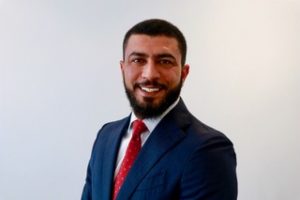
Sameer Daoud
“MEP contractors might be reluctant to share information on their projects,” highlights Sameer Daoud, CEO, MECIC, while talking about the challenges to the implementation of the technology. If left optional, he says, there could be a high chance where many won’t even attempt to make their presence known on the system. Aamidor echoes Daoud, saying that building owners and operators, too, might not be keen on sharing their performance data; however, he adds that the system might maintain some level of anonymity for them to do so. Daoud believes that transparency and sharing project details will give the HVAC and MEP contracting space the much-needed push to innovate. “Cost is another influencing factor,” says Aamidor, who points out that, while the technology is thought to be the panacea, the cost and energy demand of running servers and processing blockchain transactions will be the other challenge to its smooth application.
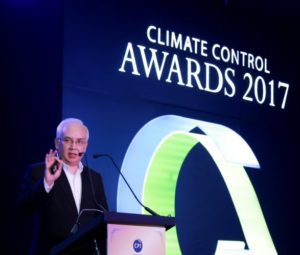
Sougata Nandi
In addition, Sougata Nandi, CEO, 3e Advisory, points to timely information updates as crucial to the blockchain. “If HVAC equipment is not registered or updated on the developer’s point of the ledger, then it falls off the blockchain,” he says. Calling it a disciplined task, he highlights that the technology alone does not blacklist a defaulter; instead, it just records the fact that a default has happened. Nandi also points to hacking as a huge threat and says, “Along with the safe storage of data, protecting it from being hacked is a major concern.” He advises that any government adopting blockchain must ensure an investment in infrastructure to protect the system.
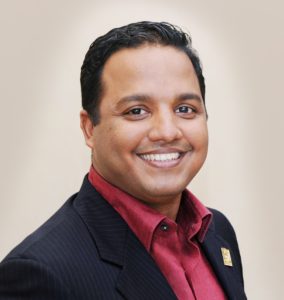
Bobby Krishna TM
In addition to hacking, Bobby Krishna TM, Senior Specialist, Food Permits and Applied Nutrition Selection, Dubai Municipality, singles out the overreliance on technology as a major challenge to the application of blockchain. He says: “There is an over-reliance on the internet, for instance, if there is no internet, the whole system stalls. However, in the case of the Food Watch Programme, we do have backup plans to ensure that it never shuts down.” Food Watch is an initiative by the government of Dubai, which uses blockchain to increase traceability.
Elaborating on the over-reliance of technology, Schumer says that today, there are ways in which the internet can be made redundant. Highlighting Content Delivery Networks (CDNs) as a useful tool to send out updates, he says, “CDNs are another breakthrough and are networks that use proxy servers, which have their own data-centres.” Today, he says, CDNs are widely used by cellular companies to send out software updates to their users.
‘Handling of information in Blockchain is crucial’
Dickenson highlights the implications of the technology on its stakeholders and explains with an example. He says: “Imagine you had a health condition and that it was recorded in a system. You don’t suffer from it anymore; however, every time you travel to a country where the condition is not allowed, it shows up on the system.” And this, he says, is bound to affect the stakeholder, no matter how well-placed the technology might be. Raising a crucial issue, Dickenson says, “You don’t want one thing to affect your entire future.” He adds saying, “If when I was young I went with the wrong crowd, should that mar my record for good?” Here, he says, is where legislation plays a crucial role and the application of blockchain to any industry, demands several levels of security and is something that needs to be developed.
Echoing Dickenson is Nandi, who refers to trust and duplication, both as independent issues. He says, “[Blockchain technology can avoid] wasteful hours spent in updating the same information by multiple parties and can ease the access to information; however, if someone uploads a wrong set of information that goes undiagnosed, then holding blockchain technology responsible would not be fair.” Checks and balances, he says, are going to be crucial for the success of blockchain. He also points out to IoT and its extensive use in blockchain and says, “For the smooth link of IoT to the blockchain, it needs to be customised on a case-to-case basis.” He says that IoT will enhance traceability, improve manufacturing and will power a paperless society.
Blockchain and the Food Watch Programme
Bobby Krishna believes that blockchain is not the immediate solution to the lack of transparency in an industry. Drawing a fitting analogy, he says, “Blockchain is like Windows, an operating system on a computer, which helps get work done.” The Food Watch Programme, he says, is something that uses blockchain technology, but eventually, the success depends on the data collected and how it is linked to the food chain industry. Calling the Food Watch Programme an excellent initiative, Schumer discusses how it might be too soon to tell whether the platform is a success. He says, “It will take time for people to see the true value of the Food Watch Programme.” What is visible, he says, is only the front-end of the application and the idea is to track every choice related to food safety and make it available to everyone.
Krishna adds that today, “Data is governance” helps to get to the root of a particular problem. Speaking on the performance of the Food Watch Programme, he says, “The Food Watch Programme is relatively new and is a platform where every stakeholder can access the system using his or her personal account.”
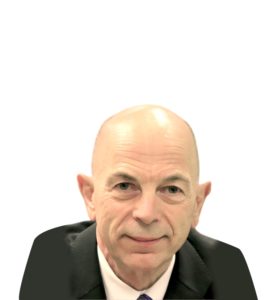
Richard Sprenger
Richard Sprenger, Chairman, Highfield Middle East, refers to the programme as an ambitious and world-leading initiative and is hopeful that the platform will make a significant contribution to food safety. He says, “The Food Watch Programme will provide an opportunity for stakeholders to participate completely while recording information in a timely fashion.” However, echoing Schumer, he says that it might be too early to confidently claim that the technology has achieved the stated objectives. But he asserts that it has the potential to provide evidence in a few years’ time.
Echoing Sprenger, Krishna adds that since the adoption of the programme, the technology has benefitted the system and that Dubai Municipality is in the process of making updates to it. “The vehicle certification will trace all the food transport vehicles, anywhere in Dubai, and will keep an eye out for the places they supply food to,” Krishna says. He adds that now, since the technology is in place, Dubai Municipality is exploring new models and is thinking of how best it can use blockchain in a cost-effective manner. “I have to admit that initially, we were sceptical about the shift, because the Food Watch Programme demands complete transparency,” Krishna says. And initially, he says, a number of people were afraid to share data, as they were afraid of being exposed. He adds, “The platform is being made more user-friendly, and we must always remember that the technology and its application is a long-term framework.”
Takeaway message
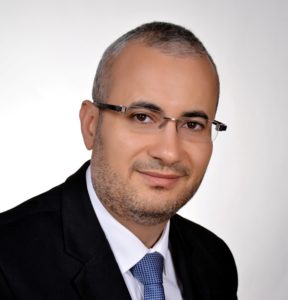
Marwan Abu Ebeid
Marwan Abu Ebeid, Senior BIM Manager, Turner Construction, believes that blockchain shows tremendous promise and proves to be most advantageous when applied to any supply chain across any industry. Srinivasan shares the same feeling and insists that the application of blockchain to HAVC should show how a manufacturer, supplier, contractor and consultant have performed on a project and he says this will have serious implications for the future.
Calling it the greatest invention after the internet, Khan says that blockchain has an enormous amount of potential, while making a case for education and awareness. He says: “Education and awareness play a key role in ensuring that all the stakeholders understand, appreciate, adapt and innovate within the blockchain revolution as opposed to distancing themselves, thereby putting themselves at risk. If done well, the technology will most likely be the greatest anti-corruption tool that exists.”
“Consumers and the general public are still not able to differentiate among blockchain technology, cryptocurrency and digital currency.

Tarek Mohammed
The Dubai Smart Government is running 20-plus pilot projects with different government entities, while analysing various Proof of Concepts (POC). The Emirates Blockchain Strategy can be applied to any sector and will result in the conversion of information into valuable assets. The application of the technology will make manual storage redundant and will eliminate any risk related to the forging and loss of information. The strategy uses multiples kinds of blockchains, for instance private blockchain, which is visible to only a certain process; public blockchain, which is kept open to everyone and hybrid blockchain, which is a mix of private and public strategies. But one must remember that the benefit derived from the application is relative to the nature of its application and the way it is used. The beauty of having the technology is that as an open source and an entity, it is not owned by anyone and, hence, if applied to the HVAC sector it will definitely improve transparency in transactions among consultants, contractors and even end-users.”
Tarek Mohammed, Co-Founder, Dubai Blockchain Center

Shilpa Basappa
“Today, advanced HVAC Management and Control Systems use IoT to gather building- and energy-related data every 60 seconds. This will enable blockchain to store the highly confidential data securely and ensure interoperability.”
Shilpa Basappa, Principal Engineer, 75F
Copyright © 2006-2025 - CPI Industry. All rights reserved.